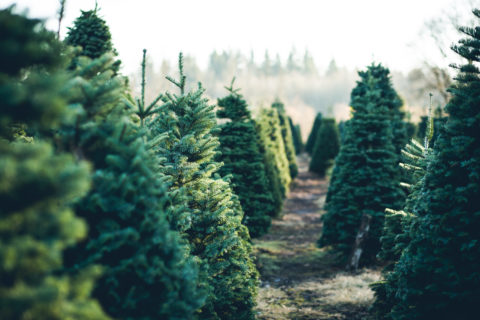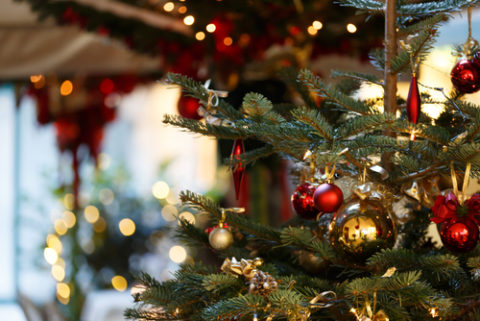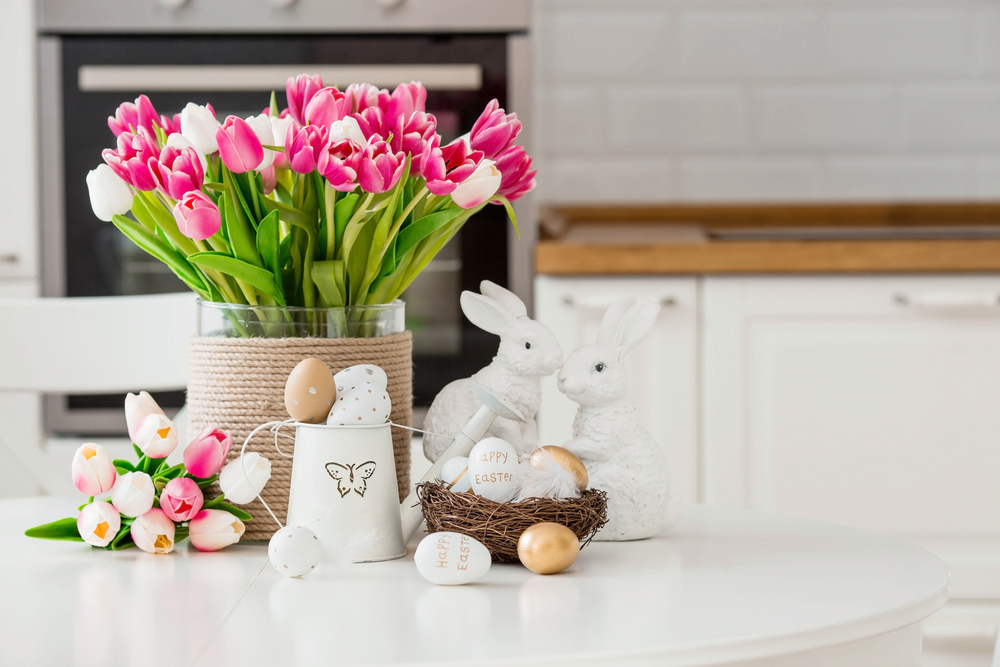Time to get ready for Christmas… but where do you stand on Christmas trees?
They are a must-have Xmas decoration of course, but should you go for real or fake? Opinion is divided, so here we review the case for real and fake trees.
The Case For A Real Tree

So, what are the key benefits of going for a real tree?
The Experience: Shopping for a real tree is a magical experience – involve all the family and it will spark the festive spirit. A true Christmas tradition.
Scent-sational: Real trees smell amazing. Ever-green fern is the perfect scent for Christmas time.
Eco-friendly: Real Christmas trees can be eco-friendly. They are usually grown specifically for the season at farms, so you will not destroy natural woodland.
To maintain sustainability most Tree Farms will plant 1-3 seedlings for each tree cut too. Plus, if you buy locally you will limit your carbon footprint.
Re-cyclable: The added benefit of a real tree is that all of it can be recycled. Most councils will offer a tree recycling service, so check your local area website.
Cons? Not the best choice if you are allergic or can’t stand to sweep up the pine needles every day!
In conclusion real trees are a great eco-choice – if you buy local.
You could even consider buying a potted tree with roots so you can keep it and grow it, or ‘rent a Christmas tree’ which is available at many garden centres.
The Case For A Fake Tree

Now what about the fakes?
Less-mess: No issues with pine needles dropping on the floor. Particularly helpful if you have pets or children!
The Perfect Tree: Fake trees look perfect and are excellent value for money. No risk of drooping branches, bald patches or brown pines with a fake version.
Re-usable: Keep the tree in storage, and you can re-use it every year. Better for the wallet and the environment. According to The Carbon Trust a fake tree needs to be used over 10 years in order to offset its carbon footprint.
So, keep using it – or donate to charity.
Allergy Free: Fake trees are obviously the right choice for people with allergies. No insects or pollens brought into the house.
Cons? Most fake trees are made from PVC which is non-recyclable – many trees will end up in landfill. Opt for Polyethylene versions which are a ‘safer’ plastic.
The result? Fake trees are a great hassle-free choice, particularly if you have allergies. To minimise your carbon footprint though, buy a pre-loved tree and continue to re-use it for many years to come!
So, which one will you choose? Fake and real trees each have their own pros and cons.
Do you want the convenience of getting it out of storage every year – or the experience of getting a real one?
Let us know what you decide!




Leave a Reply